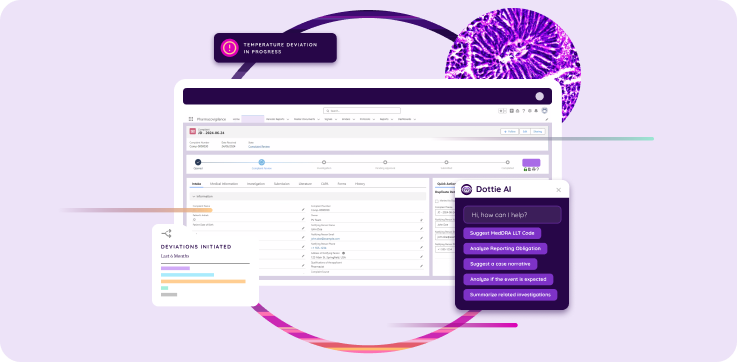Top Features to Look for in a Life Sciences QMS Platform

A modern electronic Quality Management System (eQMS) should support compliance, improve operational performance, and scale with your business. But not all QMS platforms are designed with life sciences in mind.
Here are the top features to look for when selecting a QMS platform for your organization:
1. Pre-Validation and Compliance Readiness
A life sciences QMS should come pre-validated or offer validation support to meet FDA and global regulatory requirements. This includes:
- Support for FDA 21 CFR Part 11 and EU Annex 11
- Validation documentation (IQ, OQ, PQ)
- Electronic signatures and audit trails
- Change control tracking
Why it matters:
Validation reduces the time and resources required to prove the system works as intended and ensures you stay compliant from day one.
2. End-to-End Quality Process Management
A QMS should manage all core quality processes within a single platform. Look for systems that include:
- CAPA
- Deviations
- Complaints
- Change control
- Audit management
- Training management
Why it matters:
Centralized quality processes provide visibility, consistency, and traceability across departments and global sites.
3. Document Control and Management
Document control is a fundamental QMS capability. Key features include:
- Version control
- Access permissions
- Electronic approvals
- Expiration alerts and training linkage
Why it matters:
A secure, streamlined document lifecycle ensures up-to-date procedures and policies are always available to those who need them.
4. Integrated Training Management
An effective QMS should tie documents and SOPs directly to employee training. Look for:
- Role-based training matrices
- Training assignment workflows
- Retraining triggers on SOP updates
- Reporting and training effectiveness tracking
Why it matters:
Training is often flagged in audits. Your QMS should help ensure that only qualified personnel perform regulated activities.
5. Risk-Based Decision Making
Modern QMS platforms should support risk management. Features to look for include:
- Integrated risk assessments (FMEA, risk scoring)
- Risk-based prioritization of quality events
- Linkage between risk and CAPA or audit findings
Why it matters:
ICH Q9 and Q10 emphasize risk-based approaches. Embedding risk into your quality system supports better decisions and compliance.
6. Audit Readiness and Traceability
Your QMS should make audit prep part of daily operations. Key capabilities:
- Tamper-evident audit trails
- Time-stamped logs by user and action
- Reporting on overdue tasks or approvals
- Readiness dashboards
Why it matters:
Auditors expect transparency and traceability. A QMS that automates recordkeeping and reporting makes it easier to demonstrate compliance.
7. Global Scalability and Secure Access
Life sciences companies often operate across multiple sites and regions. Look for:
- Cloud-based access (SaaS model)
- Real-time data sharing across departments
- Multi-site support with centralized oversight
- Role-based access control
Why it matters:
As operations expand, your QMS should scale without compromising security or slowing processes.
8. Analytics and Quality Insights
A modern QMS should provide more than data storage. Key features:
- Real-time dashboards
- Quality KPIs (e.g., time to resolution, audit findings by site)
- Trending and root cause analysis tools
Why it matters:
You need actionable data to drive improvement and detect issues before they escalate.
9. Supplier Quality Management
Suppliers are a critical part of the life sciences value chain. Your QMS should support:
- Supplier onboarding and qualification
- Performance monitoring
- Supplier audits
- Issue tracking and resolution
Why it matters:
An effective supplier management process reduces risk and ensures product quality from the source.
10. AI and Automation
Innovative QMS platforms offer AI features. Consider:
- AI-assisted task routing
- Smart document classification
- Predictive analytics for quality trends
- Automated audit prep reports
Why it matters:
AI can reduce manual work, improve decision-making, and shorten cycle times when implemented responsibly.
Final Thoughts
The right QMS platform supports a compliant, connected, and scalable quality environment across your organization. In the life sciences, that means built-in validation, flexible workflows, and real-time visibility into quality processes.
Whether you’re upgrading from a legacy system or implementing your first eQMS, these features should guide your selection process.
Want to see how Dot Compliance delivers these capabilities? Get a demo.



